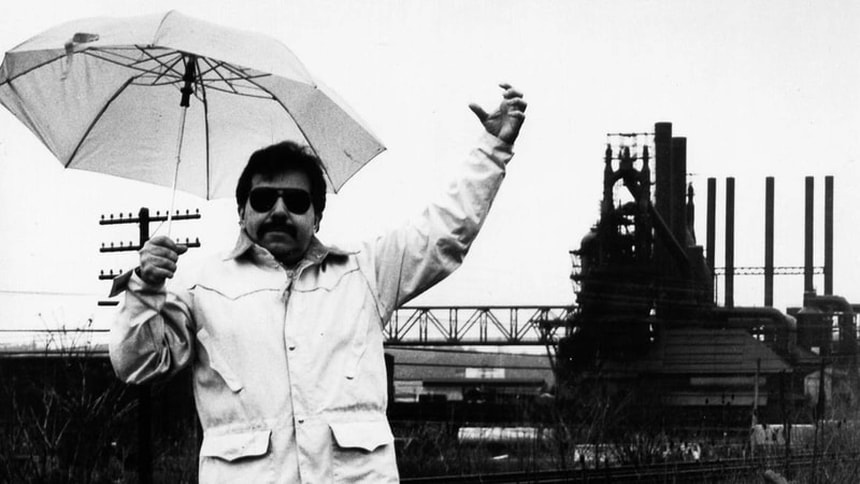|
Tony Buba's Lighting Over Braddock truly deserves a larger audience. Wonderfully interweaves true ground-up independent cinema and its intrinsic contention between art and commerce with the plight of the working class, exhibiting the collective anxiety of a community eroding at the hands of transnational capitalism. Self-reflexive and self-effacing, Braddock utilizes a diary-like formal structure to explore the pernicious deceptions of the American Dream. It is truly miraculous how Lighting Over Braddock manages to be so playful, inventive, and light-hearted in approach while never diminishing or devaluing the severity of the situation. Manages to be irreverent in the way its fantastical elements reveal the deceptions of the American dream while simultaneously offering an observed document of a deteriorating community, Lighting Over Braddock's specificity to Buba's own social arena becomes a universal rally cry against an America in which economic imperialism supplants social stability. Buba understands that authenticity within social documentation lies in part with the willful acknowledgment of artifice. He embraces artifice through this meta-textual fantasy, weaponizing with an eye toward communal construction that places paramount importance on platforming various members of the community and making them a part of the creative process. By infusing his own story with that of the community, Lighting over Braddock manages to be deeply affecting and therapeutic. It is a willful acknowledgment and rejection of communal decay under profit-driven enterprise. Lightning Over Braddock is my first foray into Tony Buba's work and it certainly won't be my last.
0 Comments
Leave a Reply. |
AuthorLove of all things cinema brought me here. Archives
June 2023
|

 RSS Feed
RSS Feed
